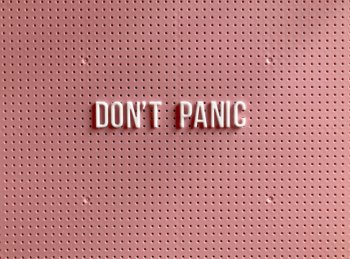As we continue to cope with the mental health issues resulting from the prolonged stress, anxiety, and social isolation of the pandemic, it’s more important than ever to be able to recognize troubling symptoms and understand how to support someone close to us who may be struggling with a mood or anxiety disorder.
Dr. Monica Vermani is a Clinical Psychologist specializing in treating trauma, stress and mood & anxiety disorders, and the founder of Start Living Corporate Wellness. She is a well-known speaker, columnist and advocate in the field of mental health and wellness.
Her book, A Deeper Wellness, is currently available for pre-sale on Amazon, and her in-depth online self-help program, A Deeper Wellness, offers powerful mental health guidance, life skills, knowledge and healing, anywhere, anytime. https://www.adeeperwellness.com/ https://www.drmonicavermani.com/
According to mental health experts around the world, the global pandemic has left us in a mental health crisis. According to a March 2021 study by Toronto’s Centre for Addiction and Mental Health (CAMH), one in five Canadians reported high levels of mental distress. An alarming 20.9 percent of survey respondents reported moderate to high levels of anxiety, and 20.1 percent reported feelings of depression.
When it comes to dealing with depression and anxiety, recognizing and understanding symptoms, and knowing how to effectively support those close to us who are struggling, are critical. Symptoms of depression and anxiety can range from mild to severe. Severe levels of anxiety and depression can limit, hinder and impede functioning and propel those who suffer into a downward spiral. In order to support people close to us who may be struggling, it is important to understand what depression and anxiety are, how they show up, and how you can support someone close to you who is struggling and suffering.
Understanding How Depression And Anxiety Show Up
We all recognize and empathize with a broken limb, a severe cold or flu, or other serious physical illness, and we are comfortable and confident when it comes to supporting those we care about with such concerns. But when it comes to our own mental health and the mental health of others, it’s a whole different story. It is important for us to develop a better understanding of mental illness, how it can show up and play out in our own lives and the lives of people we care about, and how we can help ourselves and others.

Depression
Serious or clinical depression is defined as a prolonged period (two weeks) of low mood, a loss of interest in activities and pursuits, changes in appetite (eating too much, too little or not at all), and changes in sleep routines (sleeping too much, too little or not at all). People struggling with depression also often suffer a decline in memory or libido. They also can become increasingly irritable and choose to isolate themselves from others. They can begin to feel a sense of hopelessness and worthlessness, engage in dark thoughts, have low self worth and ideate on escaping from life. Someone suffering through these symptoms long-term (more days of suffering than not suffering over a two-year period) is suffering from a more chronic and persistent form of depression, called dysthymia.
Anxiety
Anxiety involves a cluster of overlapping troubling symptoms. They feel restless, tense, and unable to control negative ruminations. They are overwhelmed, fearful, nervous, and hyper-sensitive. They become pessimistic, full of dread, and self-doubt, and they lose their ability to control racing negative thoughts and ruminations. As with people struggling with depression, they may isolate themselves from people and activities that bring them joy, and they can experience changes in sleep and appetite, and become increasingly irritable and difficult to be around.
An Inability To Recognize Symptoms
People in the throes of serious depression or anxiety are overwhelmed, and unable to recognize their symptoms as troubling and problematic. They are unable to see the negative impact of their troubling symptoms in their lives, and they are unable to understand and appreciate the effect their symptoms are having on their family, friends, and co-workers. When they are in pain, they tend to spill over onto others with their symptoms. It is important for those with daily contact with someone struggling with depression or anxiety to understand that the sufferer does not intend to hurt and harm others, but that they are unable to see beyond their pain and suffering.
Our Responsibility To Someone Who Is Suffering
When we recognize and understand troubling symptoms in someone close to us, we have a responsibility to that person to let them know that we are concerned. We can approach them with respect and talk about the changes that we see, and share insights into what they may be going through. We can offer them our companionship, support, and company, and assist them in finding professional help. It is important to remember that while supporting someone who is struggling with depression or anxiety, it is critical that we care for ourselves, and do not assist others at the expense of our own mental or physical health.

People struggling with depression or anxiety can feel hopeless, lost, and feel that they are in an uncontrollable downward spiral. They often are immobilized by their condition and unable to help themselves. It is important for those close to someone who is suffering from depression or anxiety to get involved. We can reach out, talk to them privately in a caring manner, and offer support. Reaching out to someone who is struggling can make a world of difference for that person, It can open the door to positive change, through intervention, treatment, and healing.
The Responsibility Of The Person Who Is Suffering From Depression Or Anxiety
Just as we have a responsibility to assist someone close to us who is suffering from anxiety or depression, the person who is suffering has a responsibility to themselves and those so support them to seek the help they need to move beyond their depression or anxiety. Ultimately, the decision to seek treatment and the responsibility to heal is an individual one.
Our Highest And Best
We are here to live our highest and best lives, and to help those we love to do the same. Learning to recognize the symptoms of anxiety and depression, and how to intervene when someone we love is suffering is key to fostering good mental health and maintaining caring and compassionate relationships with the people close to us.
Five Steps To Supporting Someone Struggling With Anxiety Or Depression
People suffering from depression or anxiety are often overwhelmed, and unable to help themselves. Reaching out and offering support can make a world of difference for someone close to you.
Educate yourself about the signs and symptoms of anxiety and depression.
Reach out when you notice troubling changes in behavior or routines in someone close to you.
Offer them companionship and encouragement.
Encourage and assist them in seeking professional help, and continue to support them as they work to heal.
Remember to care for yourself while caring for others. It is important to care for yourself while supporting others.
Main Image Photo Credit: www.unsplash.com
Dr. Monica Vermani
Author
Dr. Monica Vermani is a Clinical Psychologist who specializes in treating trauma, stress, mood & anxiety disorders and is the founder of Start Living Corporate Wellness. Her book, A Deeper Wellness, is coming out in 2021. www.drmonicavermani.com


















































































































